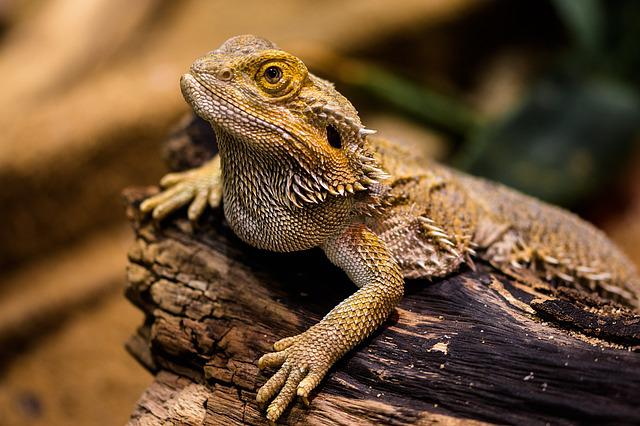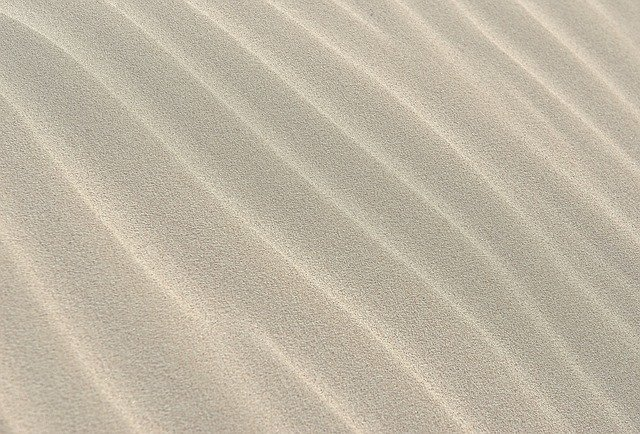Why is my bearded dragon eating sand? This is a common question that bearded dragon owners ask. If you have a pet bearded dragon, you may have noticed them eating sand at some point. But why do they do this? Is it safe for them?
Eating sand is a common behavior for bearded dragons. They may do it for various reasons, such as to help them digest their food or to get extra nutrients. In the wild, eating sand is also a way for them to find insects to eat. However, sand can be harmful to your bearded dragon if they eat too much of it. Sand can cause indigestion and blockages in the digestive system. If you notice your bearded dragon eating sand, you should watch them closely and make sure they’re not eating too much of it. You can also provide them with a clean, sand-free area to prevent them from eating sand.

Can My Bearded Dragon Consume Calcium Sand?
One of the most common questions reptile owners have is “Why is my bearded dragon eating sand?” While it may seem strange, there are a few reasons why your beardie might be interested in loose substrate.
- The first reason is that substrate can provide essential nutrients that your dragon might not be getting from their diet. If your beardie is eating a lot of sand, it could be a sign that they’re deficient in certain minerals and are trying to make up for it. This is especially common in captive dragons who aren’t being fed a nutritious diet.
- Another reason your bearded dragon eats sand is that they’re trying to soothe an upset stomach. Some dragons will eat substrate when they’re feeling nauseous or have an upset stomach. This behavior is called pica, and while it’s still not entirely understood why some dragons do it, it’s thought that the substrate helps to regulate their digestive system.
- Finally, some dragons simply enjoy the taste or texture of loose substrate! In the wild, the substrate is often full of delicious insects and other small prey items, so it’s not surprising that some dragons develop a taste for it. If your dragon is eating substrate in moderation and seems otherwise healthy, there’s no
Why Is My Bearded Dragon Eating Sand?

Bearded dragons are lizards that come from the desert. In the wild, they eat a variety of things including plants, insects, and small animals. In captivity, they should be fed a diet that mimics their natural diet as closely as possible. This includes a variety of vegetables and insects. Some people also choose to feed their bearded dragons commercially prepared diets that contain all the nutrients they need. One of the biggest concerns for many bearded dragon owners is their bearded dragon eating sand. This can happen for a variety of reasons.
The most common reason is that the bearded dragon does not have enough calcium in its diet. Calcium is essential for bearded dragons as it helps them to build strong bones and claws. As with most animals, bearded dragons require a balance of nutrients to stay healthy. One of the key nutrients they need is calcium powder, which is essential for strong bones and muscles. Bearded dragons can absorb calcium more efficiently from eating more calcium-rich foods, but they will also consume sand if it is available. While eating sand does provide some calcium, it can also lead to health problems if consumed in large quantities. Regular sand can cause digestive issues and impaction, making it difficult for the bearded dragon to digest food and absorb nutrients. Without enough calcium, Beardies can become sick and even die. If you think your beardie might be lacking in calcium, talk to your veterinarian about giving them supplements.
Another reason why your bearded dragon might be eating sand is that they are trying to relieve stomach upset. Sometimes, when Beardies eat things that don’t agree with them, they will eat sand in an attempt to settle their stomach.
Bearded dragons are naturally curious creatures and often explore their environment by mouth. If there is nothing else for them to play with or eat, they may start to eat loos substrate or sand out of curiosity. Eating sand can also be a sign of stress in bearded dragons. If you have recently introduced a new pet into the home or there has been a change in their routine, this could be the cause of their stress and subsequent sand-eating behavior. While eating a small amount of sand is not typically harmful to bearded dragons, it can cause gastrointestinal tract issues if they eat too much.
What Health Issues Do Bearded Dragons Risk Facing From Eating Sand?
Bearded dragons love eating sand for a few reasons. It could be that they’re missing out on some nutrients that are found in their natural habitat, like proper calcium. They might also mistake regular sand for food, like insects or small reptiles. Bearded dragons are not immune to the dangers of consuming sand. Several health issues can arise from a bearded dragon eating sand. Some of these health issues include intestinal blockages, impaction, and digestive problems. intestinal blockages and impaction are both serious conditions that can lead to death if not treated promptly.
In some cases, ceramic tiles can contain traces of lead and other toxins that can be harmful to your bearded dragon. If you’re concerned about your pet’s health, it’s best to consult with a veterinarian to see if there are any other possible causes for their behavior. In the meantime, you can try providing them with aiptasia-free ceramic tiles or another type of substrate that’s safe for them to eat.
Digestive problems can also be very painful for your bearded dragon and can cause weight loss and other health problems. If you think your bearded dragon may have eaten sand, it is important to take him to the vet for an evaluation as soon as possible. The vet will be able to determine if there are any health problems and will make recommendations on how to best treat them.
Conclusion
There are a few possible reasons why your bearded dragon might be eating sand. It could be that they are looking for extra calcium, or it could be that they simply enjoy the taste or texture of sand. If you’re concerned about your bearded dragon’s health, talk to your vet to get their professional opinion.

